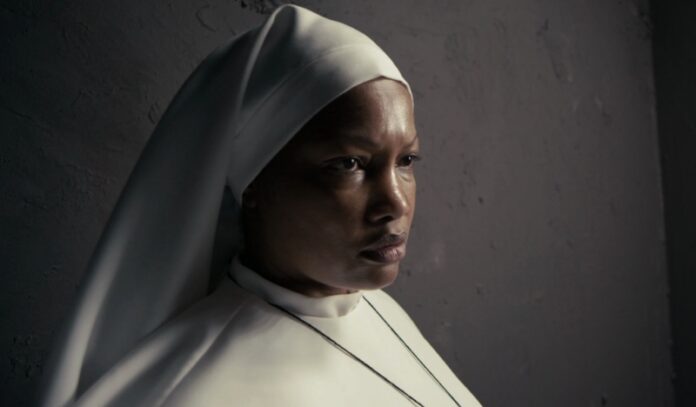
Across international festivals and intimate film screening, a wave of new and exciting Haitian films are emerging. And this latest crop of Haitian films prove far from typical, breaking the mold in style and substance. These inventive shorts and full length features range from moving personal stories to dramatic explorations of history. Though these productions remain small and independent, their scope never feels limited, and can only promise even greater things to come. For your viewing pleasure, we’ve gathered a few of our favorite projects now making the rounds through the independent film circuit that are a must-see.
Douvan jou ka leve (The Sun Will Rise)
Actress and filmmaker Gessica Geneus explores faith and family in this intimate documentary produced for France Télévisions. The film follows her journey examining what she calls the “illness of the soul”—the country’s fraught religious divide between Vodou and Christianity. She filters this exploration through her relationship with her mother, who suffers from bipolar disorder, and attributes her condition to vodou spirits. The result is a moving meditation on both mental illness and a nation’s as-yet unassuaged inner turmoil.
The Crying Conch
This short reimagines the legendary Haitian revolutionary figure Mackandal and his origins tale as a modern fable, told in lyrical cinematography. The story follows a man retracing the footsteps of the historic Haitian slave leader, who is trapped in a curse which started centuries ago. Though directed by Mauritian/Canadian filmmaker Vincent Toi, the small production however keeps to the story’s deep Haitian roots creatively. Toi shot the film across Haiti, including the iconic pine forests of Seguin. Performed all in Kreyol, the film also stars Haitian actor and fellow film collaborator Ebby Angel Louis.
An Excavation of Us
French-born director Shirley Bruno dives deep into her Haitian roots for this experimental animated short. The tale follows the shadows of Napoleon’s army passing by boat through a cave in Haiti. This is no ordinary cave however, but one named after the legendary Marie Jeanne. She is a female soldier who fought in the Haitian Revolution. “It is this battle inside her cave that will become the most successful slave revolution in history,” says the artist’s statement.
Lalo’s House
Part fable, part horror, Lalo’s House tells the story of Manouchka, an 11-year-old Haitian girl kidnapped with her little sister Phara. Caught in the wrong place at the wrong time, both find themselves trapped at an orphanage that traffics children. Manouchka must learn the ways of the adult world to save herself and her sister. Directed by American filmmaker Kelley Kalí and produced by Haitian-American actress Garcelle Beauvais, the film seeks to shed a spotlight on child trafficking on the island and other abusive conditions like restavek.
Petit Frère
Over 100,000 Haitians live in Chile. Recent news tell tales of conflict and forced deportation, but this new experimental documentary celebrates this budding community. The film explores the Haitian community in Santigo de Chile with a slice-of-life point of view. Directors Roberto Collío and Rodrigo Robledo ground the film with the witty and insightful narrative by Haitian writer and activist Petit-Frère Wilner. Told in fragments, the film attempts to “interrogate exile and identity,” says the artist’s statement.
Check out more fascinating Caribbean films released just this year, from two new Trinidadian biopics to moving films exploring Cuban immigration and identity.
































